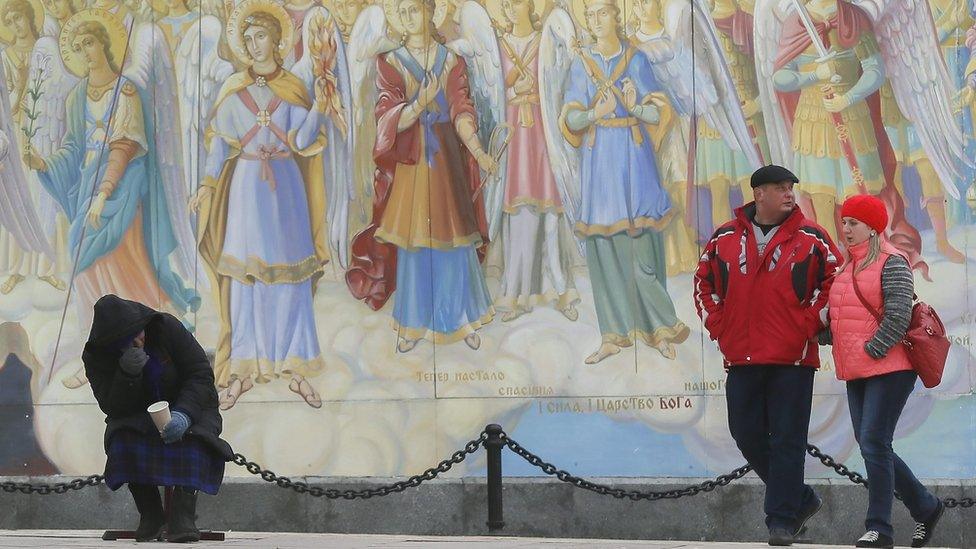Ukraine conflict: UN officer captured by Donetsk rebels
- Published
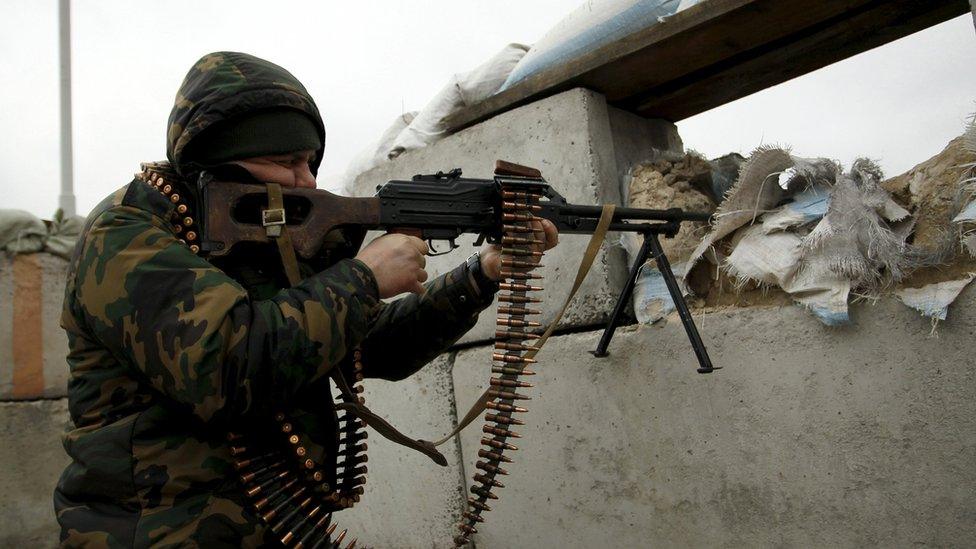
Some of the worst violence in eastern Ukraine has been near the town of Avdiivka
The United Nations has appealed for the immediate release of a staff member held by pro-Russian separatists in eastern Ukraine.
The officer, named by the rebels as Yuriy Suprun, was seized on 8 April. The UN says talks about his release have reached a sensitive phase.
Although a ceasefire is in place, levels of violence have increased dramatically in recent weeks.
Almost 9,200 people have died since conflict broke out in April 2014.
Large swathes of the eastern regions of Donetsk and Luhansk were seized by pro-Russian rebels after Russia responded to the ousting of President Viktor Yanukovych by annexing Crimea from Ukraine.
While the current ceasefire is monitored by the international security body OSCE, the UN is carrying out a humanitarian mission in Donetsk and Luhansk.
Meanwhile, after a long period of political instability in Kiev, two of Ukraine's biggest parties have reached agreement on appointing parliament speaker Volodymyr Groysman as prime minister.
Delicate moment
The UN has given no details about the captured officer's identity or his role in eastern Ukraine but says it has "mobilised all channels", external to secure his release. Ukrainian MP Iryna Herashchenko said he was part of the UN's monitoring mission and had been detained in a basement.
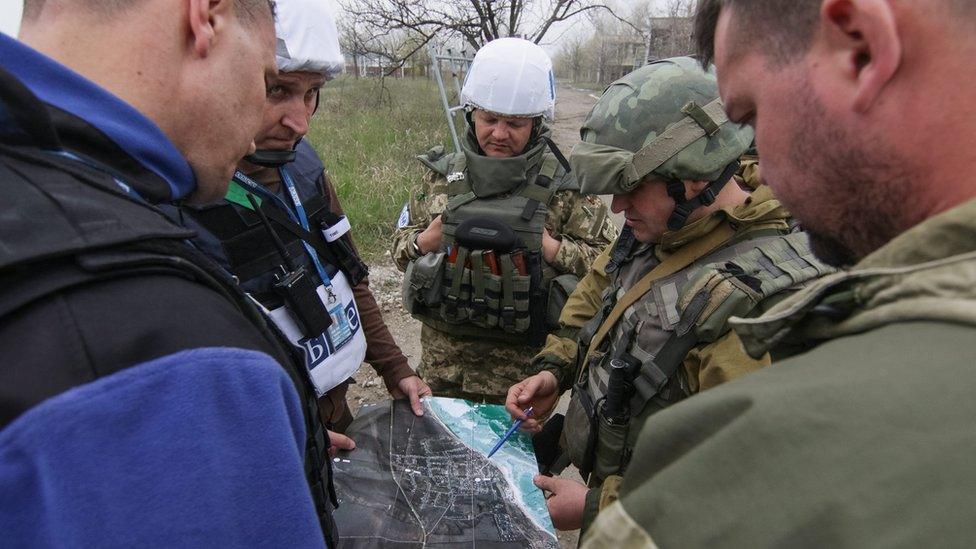
Ukrainian soldiers and monitors look at a map near Mariupol, where an increase in violence is reported
However, the rebels said he had come to their territory without proper notice and was being held while his status was clarified.
In a statement, the self-styled Donetsk People's Republic (DPR) said it suspected the officer, whom it identified as a colonel in Ukraine's SBU security service, of involvement in the "state coup in 2014" as well as the Ukrainian army's operation in the east.
If confirmed, the DPR said it would discredit the peacekeeping nature of the UN and would be unacceptable.
His capture has come at a delicate moment, when both sides have reported an increase in violence.
The rebels said one of their fighters had been killed and two civilians wounded in the past two days by Ukrainian army fire. The army said eight of its soldiers had been wounded in a 24-hour period.
An army spokesman said the situation in the Donetsk sector was "difficult" and that there had been an escalation of violence near the Ukrainian costal city of Mariupol, to the south. The town of Avdiivka has come under repeated mortar fire.

Why Ukraine's reformists yearn for change - by Kiev correspondent Tom Burridge
Volodymyr Bondarchuk's father died in the Maidan protests

President Petro Poroshenko is expected to promise Mr Groysman's nomination in parliament on Thursday.
Although Mr Groysman's likely cabinet is seen as pro-EU and anti-corruption, no positions have been given to the foreign technocrats brought in by Prime Minister Arseniy Yatsenyuk's previous government to tackle Ukraine's endemic corruption. Among the key names missing are US-born former Finance Minister Natalia Yaresko and her adviser, Slovak politician Ivan Miklos.
Mr Yatsenyuk resigned on Saturday, having failed to implement reforms required by the IMF as part of a $17.5bn (£12bn; €15bn) rescue loan. Part of the loan has been suspended until a government is formed.
"I want to stress that this government, if it is formed, will tolerate absolutely no corruption." Mr Groysman said.
In a separate development, the authorities in Crimea announced the suspension of the Tatar population's self-styled parliament, the Majlis.
Prosecutor Natalya Poklonskaya said the Mejlis could not hold any public events or other activity and called for it to be branded a "terrorist organisation", reports said.
The move was immediately criticised by rights group Amnesty International , which complained that it was aimed at "snuffing out the few remaining voices of dissent in Crimea."
Tatars have lived in Crimea for hundreds of years but were deported by Stalin en masse in 1944 after being accused of collaboration during the Nazi occupation. Allowed to return in the 1980s, they boycotted the disputed referendum on joining Russia in February 2014.
Amnesty says they have borne the brunt of a Russian clampdown in Crimea and several Tatars have disappeared.
- Published12 April 2016
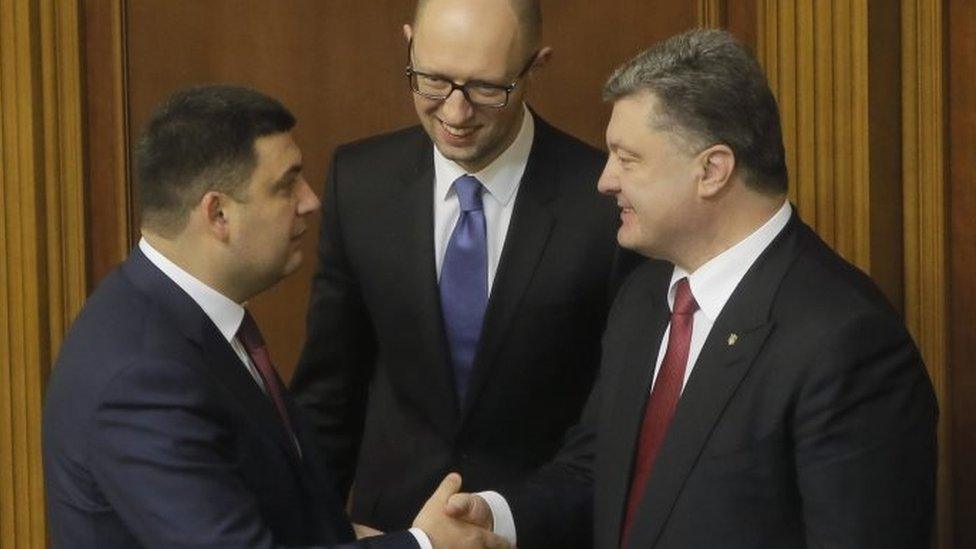
- Published12 April 2016
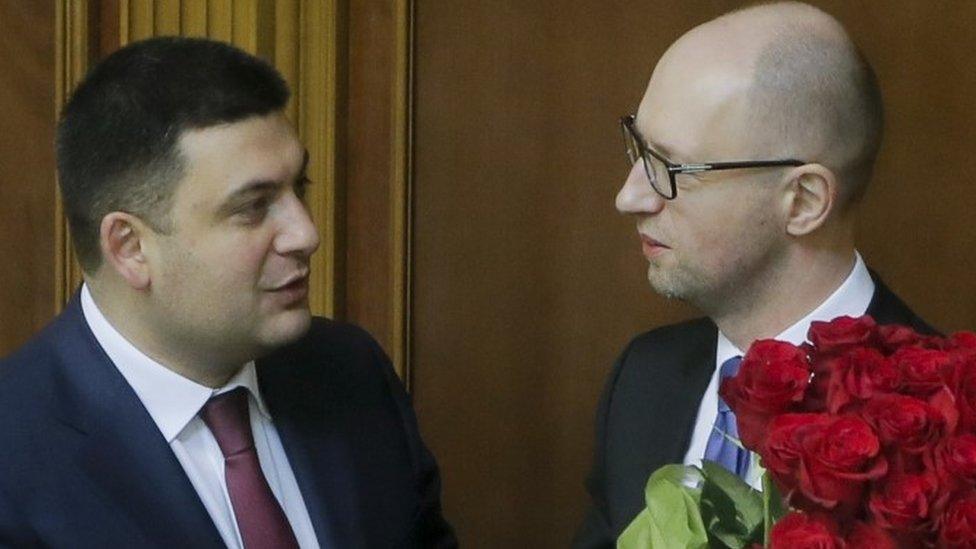
- Published5 February 2016
